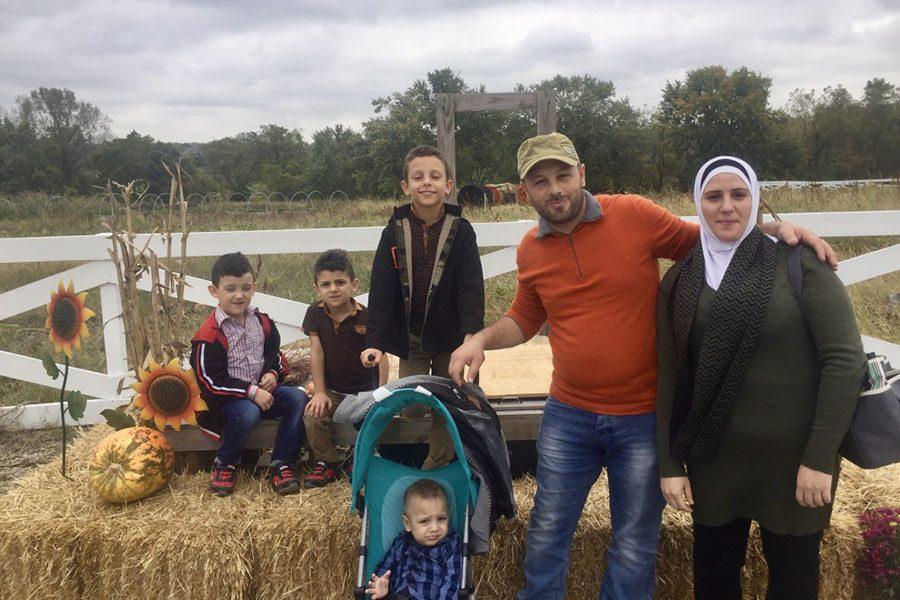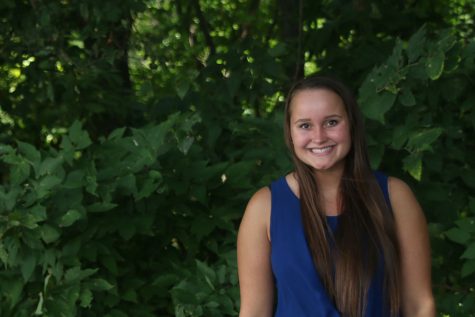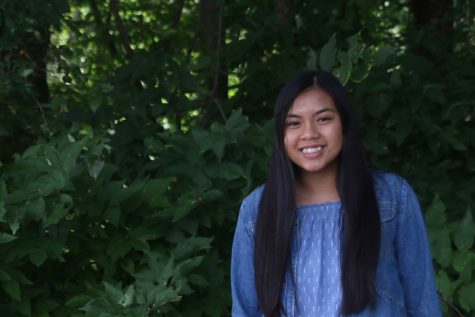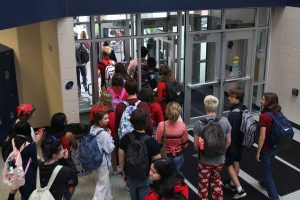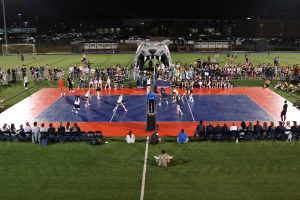Syrian refugees arrive in Kansas City
Refugees were relocated here to escape political protest
By Photo submitted by Jeff Rogers
After relocating to America the Alkhawaja family enjoys spending time together by attending the Drumm Farm.
March 5, 2017
In 2011, the Syrian Civil War began due to political resistance and protests by citizens. Since then, thousands of people and their families have fled the country in hopes of a better, safer life. Refugees, Ibraheem Alkhawajaand and Enas Hajeharrived, arrived in Kansas City, Missouri on Thursday Sept. 22, 2016 with their four boys.
The family needed assistance in order to adjust to their new lives, so they turned to the organization KC for Refugees that was founded by Dr. Sofia Khan.
“First [the organization] was just me and a group of friends doing it through our contacts, but then it grew bigger,” Dr. Khan said. “As other people and their friends and then the community found out I was doing this they wanted to get involved.”
KC for Refugees is an interfaith charity that works with Della Lamb Community Services, Jewish Vocational Services and Catholic Charities of Northeast Kansas to coordinate refugee support activities, according to Dr. Khan.
“We developed a network of communication with all the local Kansas City settlement agencies,” Dr. Khan said. “We wanted to remain in the greater Kansas City area, not just in Missouri or just in Kansas”
The organization helped settle Alkhawajaand’s family after their journey out of Syria.
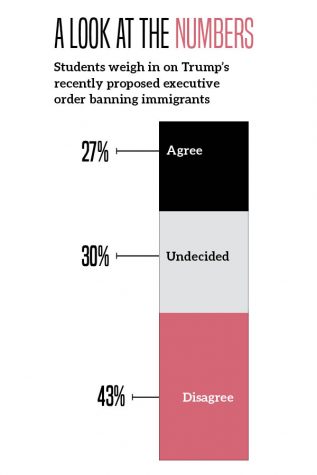 “The fighting destroyed our city,” Hajeharrived said via email. “When Ibraheem tried to return he was shot at and discovered our house had been hit by a missile.”
“The fighting destroyed our city,” Hajeharrived said via email. “When Ibraheem tried to return he was shot at and discovered our house had been hit by a missile.”
The family has adjusted to their new life in Independence, Missouri with the help of their neighbor Jeff Rogers.
“Refugee was always a term that applied to a distant person,” Rogers said. “Meeting the Alkhawajaand family changed that for [my wife] and I. We are now part of their story.”
President Donald Trump’s administration has proposed a 90 day travel ban that would block people coming from seven Middle Eastern countries from entering into America. There has been some discrepancy among the U.S. court systems. The travel ban, put in place to improve the security of the U.S., would make things difficult for many families, including Alkhawajaand and Hajeharrived.
“The rest of our families cannot visit us and we cannot leave to visit them because we would not be allowed to return to our home here,” Alkhawajaand said.
Some think that the U.S. vetting process needs to be intensified. Senior Joel Soderling believes that although immigrants help the country grow, the vetting process should be cautious and selective.
“Both [parties] need to work together to find the best solution,” Soderling said. “Obviously, not letting in refugees from any of the countries that are banned and letting them starve or die is a terrible thing, but I think there’s also a security aspect that needs to be taken into consideration.”
Others disagree and think that refugees go through more than enough. Rogers has grown close to the family in the past couple of months and believes that the vetting process is extensive already.
“I feel it is a policy that is based on fear more than fact,” Rogers said. “The average refugee goes through 18 months to three years of interviews and background checks before approval to resettle in the U.S.”
Dr. Khan agrees with Rogers and has personally seen families be torn apart because of the extensive vetting processes.
“They do break families up while bringing them [to the U.S.] because a quota is done,” Khan said. “There are families that have waited 17 years to see their siblings.”
Alkhawajaand credits this lengthy wait to prejudices towards the Muslim community.
“We are Muslim and true Islam is a religion of peace,” Alkhawajaand said. “Knowledge drives out fear.”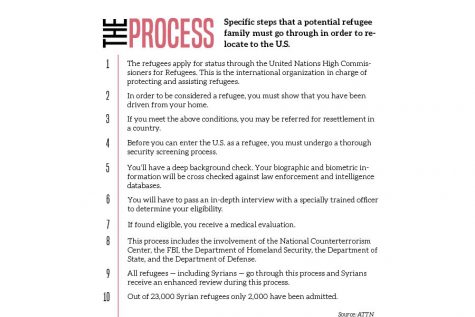
Sophomore Sorusch Ibrahimi, whose father is from Afghanistan and mother is from Pakistan, thinks that refugees are trying to get into the country because of the alarming danger they are faced with in their home countries.
“I think some people fear [refugees] because of the terrorist attacks going on, but they just have to keep in mind that the people that are actually in that location have to fear for their lives everyday,” Ibrahimi said. “People don’t understand what they go through at all.”
The family didn’t know what they were coming into, this being a whole new world for them. They just wanted a loving and peaceful environment.
“We hoped it would be beautiful,” Hajeharrived said. “We want [our kids]to get a good education and to reach their dreams.”


